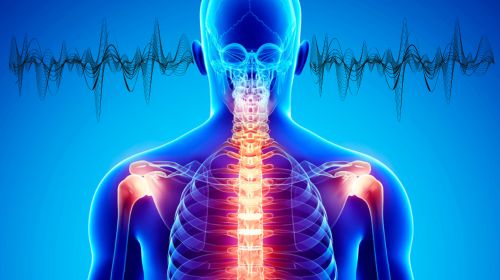The complex and individual nature of pain makes it difficult for traditional medicine to provide relief. Amidst all this discord, music therapy appears as a peaceful option. New research published in Frontiers in Pain Research reveals the power of music to alleviate pain without pharmaceuticals. This finding is consistent with the observations of the American Music Therapy Association, which sees pain as a multifaceted experience, including the senses, the mind, and the emotions. The diverse nature of music therapy makes it an unusual channel via which pain might be alleviated. Pain is forgotten, its severity is lessened, and tension and worry are reduced all at once, leading to a deep feeling of empowerment. This article investigates the healing potential of music, delving into its theoretical foundations, applied contexts, and emerging function in healthcare and everyday life.
Understanding Healing Music for Pain and its Complexities
A recent study has shown the potential of music as a palliative therapy for pain treatment. Pain reductions from listening to music are comparable to those from using anti-inflammatory drugs, often falling in the 10-20% range. Hypoalgesia occurs when there is a break in the chain of events that leads from a painful stimulus to the conscious awareness of that stimulus.
Even while music and conventional medications have quite different methods for relieving pain, the degree of their respective benefits is very comparable. The potential advantages of music in alleviating not just pain but also related diseases like anxiety and depression were discovered in a 2021 Cochrane study that focused on cancer patients. However, this evaluation also highlighted the widespread danger of bias and poor confidence in evidence in most of the analyzed research.
Despite these encouraging results, more information must be provided on which musical genre or style is best for pain management. More study is required to understand music’s therapeutic potential better and increase its analgesic benefits. Thus, research into pain’s intricacies and new treatment methods continue, with music serving as a vanguard for this fascinating topic.
Science Behind Music as a Pain Reliever
The use of music for pain reduction has been the topic of considerable investigation. Empirical studies consistently demonstrate that music has a potent analgesic effect, especially among chronic pain patients. It has been theorized that music’s analgesic, soothing, and uplifting effects are accountable for this phenomenon. Music therapy may serve as a non-pharmacological intervention to reduce pain for patients undergoing surgery or cancer treatment, as well as individuals with persistent pain difficulties.
Mechanisms: How Music Affects the Brain and Body
The neurobiological pathways via which music mitigates pain are complex. Music listening induces the secretion of dopamine, a neurotransmitter associated with pleasurable sensations and reduced pain perception. Furthermore, music impacts an individual’s mood and perception of pain by activating the limbic system, the region responsible for processing emotions. Moreover, musical stimulation may elicit the release of neurochemicals that function as innate pain relievers. These systems together collaborate to provide a calming effect in music.
Comparative Analysis with Other Pain Relief Methods
Unlike traditional pain remedies such as medication, listening to music is less risky and causes less discomfort. Unlike most pharmacological alternatives, music therapy is devoid of adverse effects or potential dependencies. Nevertheless, music therapy may not be as effective in alleviating acute pain or other problems that need pharmacological intervention. On the other hand, music therapy may be particularly effective for persons with chronic pain since it provides a holistic approach that addresses both the psychological and physical aspects of pain. Ultimately, music therapy is not intended to replace well-established methods of pain management, but it may serve as a valuable complement to such an approach.
Music’s Role in Enhancing Control and Well-being
Music’s Impact on Mental Health
The positive effects of music on health go well beyond alleviating physical discomfort. Stress, anxiety, and sadness may all be alleviated with its help. The stress hormone cortisol may be lowered by musical induction of relaxation. People with chronic pain often suffer from anxiety and sadness, but the relaxation response may help with that. Furthermore, music therapy has been applied in numerous mental health settings, assisting in emotional expression and coping for those with mental health conditions. Music might help people release pent-up emotions and feel better by establishing a link between feelings and sounds.
Music’s Role in Fostering a Sense of Control Over Pain
Listening to music makes people feel more responsible for their pain management. People may actively participate in pain treatment by picking a piece that connects with their tastes and emotional requirements. Participation in such activities may help people with chronic pain regain their feeling of agency and control. Another way that music helps people feel more in charge of their lives is by acting as a distraction from painful emotions so that they may concentrate on more pleasant experiences. In essence, music provides an alternative way for people to take charge of their discomfort, which may improve their health and feelings of agency.
Use of Calming Music for Pain Relief
Selecting and timing music for pain management routines is an involved process. The listener greatly influences the success of music therapy; therefore, it’s important to start with music that speaks to you. Calming, instrumental music may help you unwind, and listening to a song you know and love might bring back warm, fuzzy sensations. Listen to music often, especially when feeling anxious or in pain. For instance, listening to soothing music before bed has been shown to improve sleep, which is essential for effective pain management.
Moreover, anxiety and discomfort may be made worse by listening to music at an uncomfortable volume. See what works best in certain contexts by trying out various musical styles. Finally, for the best results, combine music therapy with other forms of pain treatment, such as meditation or breathing exercises. Adhering to these recommendations will allow listeners to get the full advantages of music for pain and anxiety management.
Conclusion
Anxiety and suffering may be alleviated with music’s help. It is amazing in its power to ease suffering, boost mood, and give people a feeling of mastery over their lives. One might use music’s healing effects by making thoughtful genre choices and putting them into regular routines. Music therapy’s function in holistic health management is evident but should not be used instead of conventional medical care. Music is a soothing combination of art and science that may help you persevere through difficult times.










